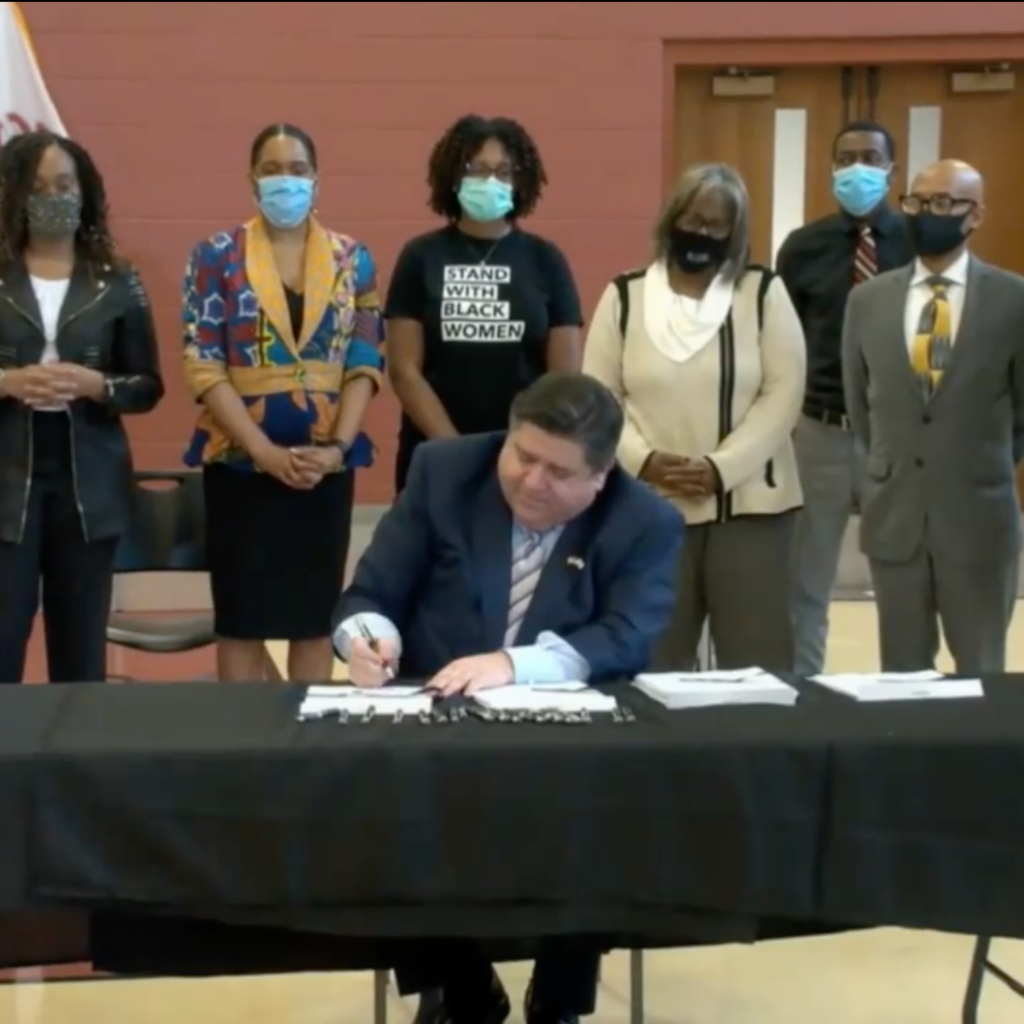As a part of the Restoring Rights and Opportunities Coalition of Illinois (RROCI), CCH advocated for the inclusion of two housing and employment reform bills within the economic opportunities pillar of the Illinois Legislative Black Caucus’ four pillar lame-duck session agenda.

The two bills, the Employee Background Fairness Act (SB1480) and the Public Housing Access Bill (SB1980) passed both chambers of the General Assembly in January, and were signed into law by Gov. J.B. Pritzker on March 23. Both bills were sponsored by Rep. Sonya Harper and Sen. Christopher Belt.
“This pillar advances our common vision for equity and inclusion by recognizing and addressing communities that have historically been cut out of the conversation,” Pritzker said before signing the bills. “That means addressing the impact of a criminal record, which shouldn’t prevent you from ever getting a job or having a roof over your head.”
All four pillars of the Black Caucus’ agenda – education, healthcare, criminal justice, and economic opportunities – were aimed at dismantling systemic racism in Illinois.
The Employee Background Fairness Act provides standards for employers to consider conviction records in an individual’s background. It makes discrimination based on a conviction record a civil rights violation under the Illinois Human Rights Act.
Sponsor Rep. Sonya Harper said, “Because of this new law, never again should an employer refuse to hire someone based on a criminal conviction if that conviction has nothing to do with the type of job being sought.”
The Public Housing Access Bill creates standards for Illinois Public Housing Authorities (PHAs) to use in the criminal background screening process, improving equity and access to affordable housing for individuals with criminal records. The bill shortens look-back periods and provides applicants with an opportunity to present mitigating circumstances before being denied due to their background.
“Formerly incarcerated individuals like myself deserve the opportunity to establish Financial Stability and not be discriminated against because of our criminal records,” RROCI leader Sontcera McWilliams said at a celebration of the bills’ passage. She noted that SB1980 “reunites families living in Public Housing.”
Increasing access to public housing and employment are vital steps in ending homelessness and ensuring formerly incarcerated individuals have a fair opportunity for a better future.
The Predatory Loan Prevention Act, another bill supported by CCH, was signed into law as part of the Caucus’ economic opportunities pillar. This legislation implements a 36 percent interest rate cap on consumer loans, including payday and car title loans.
CCH’s advocacy would not be successful without the partnership of our organizational and legislative allies. We would like to thank Gov. J.B. Pritzker, Sen. Christopher Belt, Sen. Jacqueline Collins, Rep. Sonya Harper, Rep. Delia Ramirez, the Illinois Legislative Black Caucus and all the members of the Illinois General Assembly who supported this legislation, as well as our RROCI partners Community Renewal Society and Cabrini Green Legal Aid.
The post Housing and employment reform bills signed into law appeared first on Chicago Coalition to end Homelessness .

